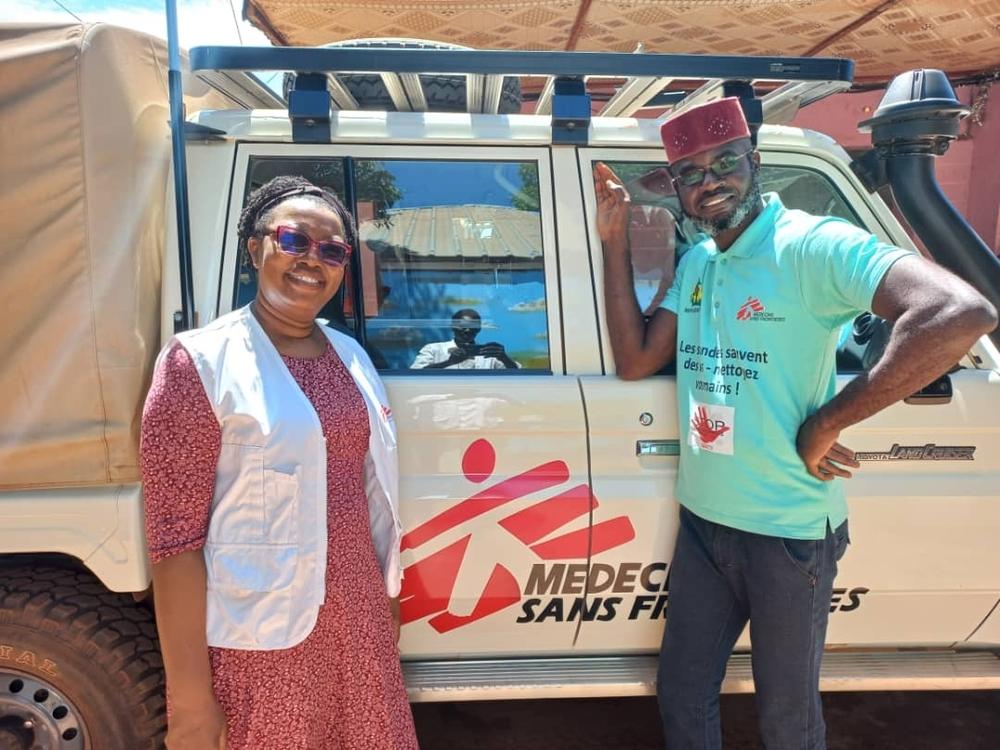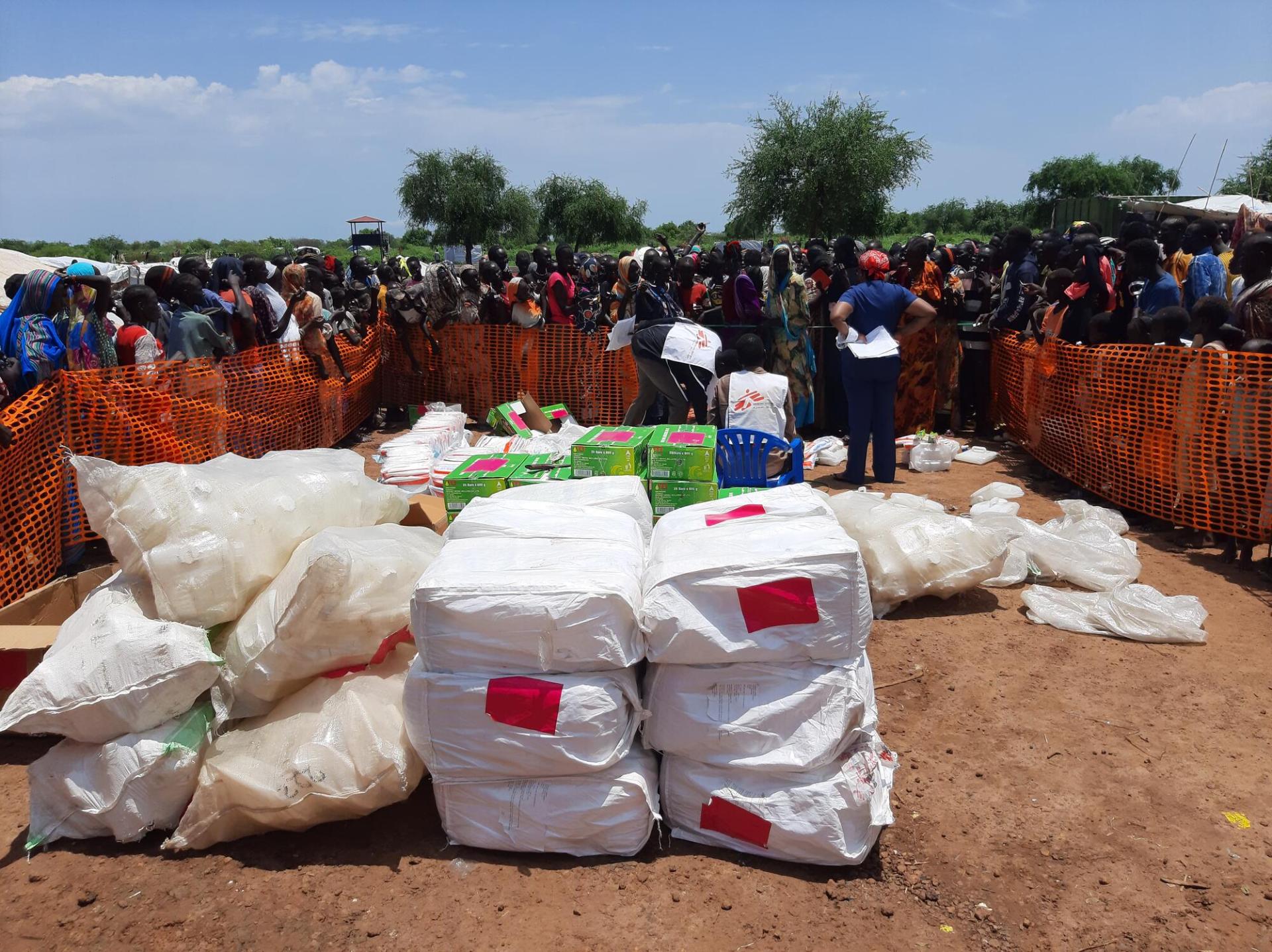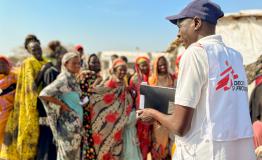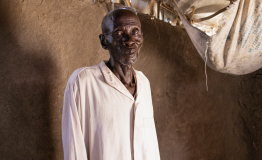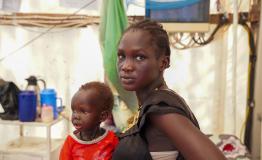- Set up two years ago, MSF’s South Sudan Emergency Response Unit (SSERU) was designed as a first responder to crises across South Sudan and to reinforce MSF’s preparedness for dealing with emergencies.
- SSERU also supports MSF’s existing long-term projects when staff face extraordinary challenges.
- In the past two years, SSERU has proven crucial in responding fast to emergencies, such as the effort to assist returnees from Sudan in Paloich, Upper Nile state.
- The team has also tackled outbreaks of diseases including malaria, measles, cholera and hepatitis E, where it also employs a preventive approach.
Monica Wambui Muchai, MSF project medical referent, and Abdel Yasser Alassane, former MSF project coordinator, describe the SSERU’s first major emergency response which took place in Paloich in July and August 2023.
What was the situation in Paloich that prompted you to launch a response?
Paloich is in Melut county in South Sudan’s Upper Nile state. After conflict broke out in neighbouring Sudan, large numbers of South Sudanese people crossed over the border to Paloich in search of safety.
Many returnees chose to settle in temporary shelters near the airport, believing that it would be faster for them to access flights to their areas of origin. However, the area is not ideal for the returnees because Paloich has underdeveloped infrastructure. Consequently, authorities decided to relocate them to a plot of land within Melut town, though the relocation was subsequently delayed.
Travelling there from Juba by road is not safe, so the only way we could reach the area was by air or via the River Nile. At the start of our response, few other aid agencies were working in the area due to these access constraints.
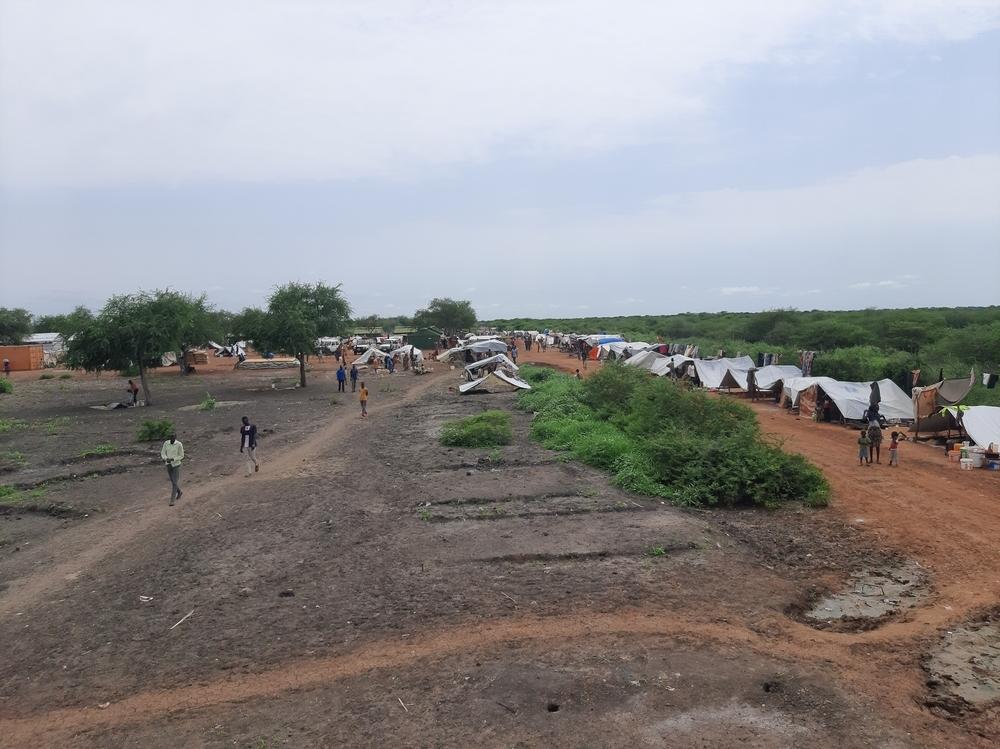
What was the main aim of your emergency response?
Our main aim was to respond to the health and nutrition needs of the returnees. Our efforts were directed towards reducing morbidity and mortality by ensuring access to quality health and nutrition services at the transit site and establishing an emergency referral system so that people in need of specialist medical care could be referred to hospital.
We also set up a community-based surveillance system to monitor potential outbreaks of disease, tackled a measles outbreak, and distributed essential relief items, such as mosquito nets, soap and jerry-cans.
The intervention was designed to be short-term in order to rapidly address priority health needs and boost the medical response until additional resources could be mobilised by other humanitarian organisations.
How did you prepare for it?
We had received information that highlighted significant needs among the displaced population in Paloich, such as health reports of high morbidity and mortality, cases of measles, malnutrition rates among children of up to 44 per cent, and significant gaps in people’s access to critical services such as water and sanitation, essential relief items, shelter, food, livelihoods and protection. We agreed with the MSF coordination office in Juba that we would fly to the area to help determine the needs and how we could provide support. We started by donating 1,000 outpatient medical consultation kits.
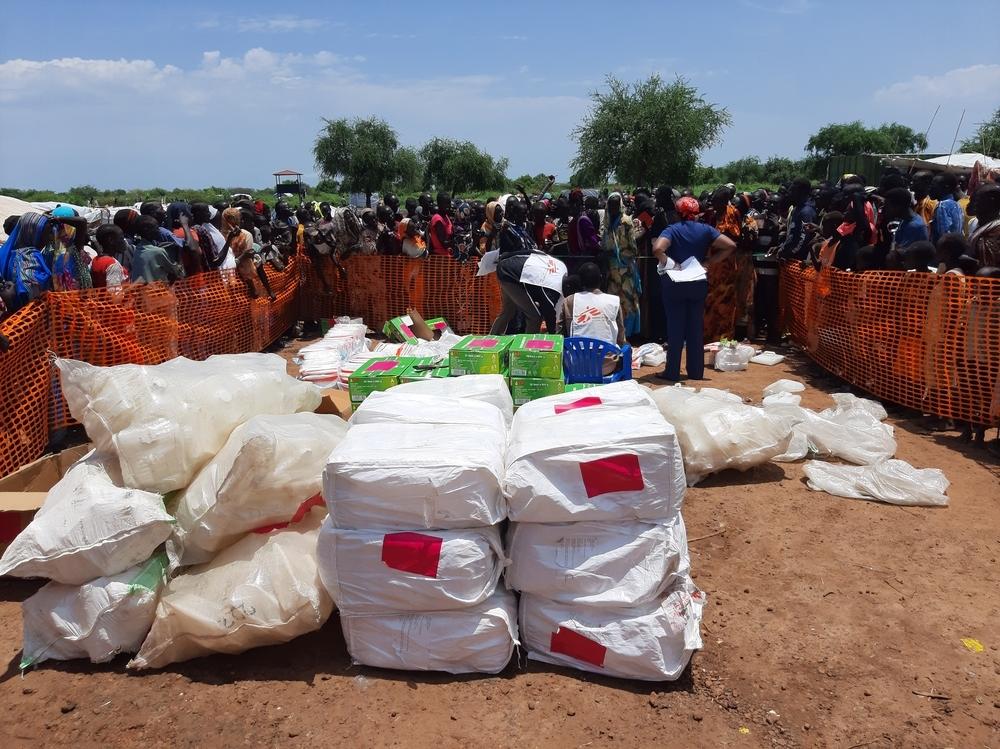
Can you describe the emergency response itself?
Our response lasted from 17 July to 17 August 2023. In this period, our medical team provided 1,965 consultations. They also encountered 49 suspected measles cases, administered 296 measles vaccinations to children under 15, treated 162 people for severe malnutrition and referred 39 patients to hospital for specialist care. Our logisticians distributed essential relief items to 1,381 households.
To address people’s health needs in the longer term will involve putting in place measles catch-up vaccination campaigns and strengthening routine immunisation activities by the South Sudanese Ministry of Health, the World Health Organization and UNICEF. To do this, health organisations will need to prioritise medical screenings of new arrivals to prevent the spread of infectious diseases and enable an effective referrals system.
When our emergency team left Paloich in August, they handed over activities and donated medical supplies to Swiss humanitarian organisation MedAir.
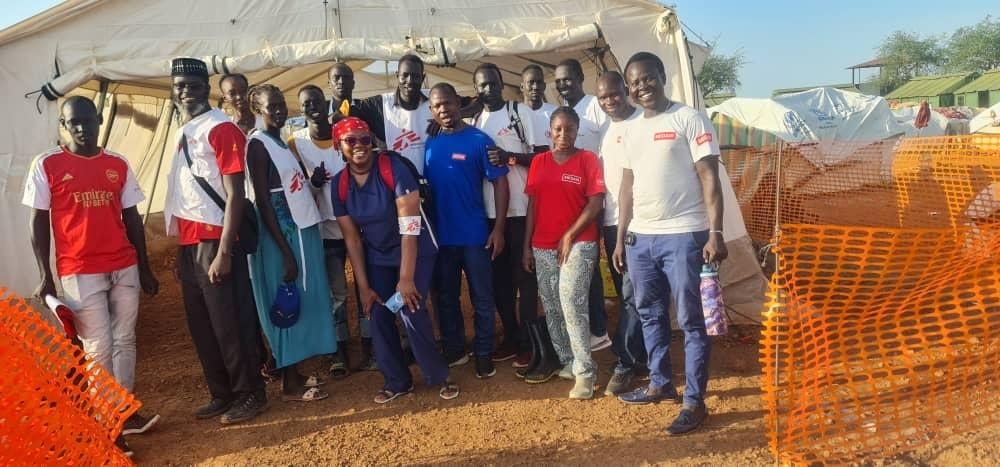
What lessons did you learn from the experience?
The success of our response was largely due to working closely with local authorities and community partners. Their support in referrals and providing ambulances was crucial.
Heavy rains and flooding often hindered access to the area, and the difficult road conditions meant that returnees often had to walk long distances to get there. The rains and poor roads also impacted our team’s ability to move around, so being adaptable in the face of logistical challenges was critical.
One of the more challenging aspects was managing referrals during peak malaria season and concurrent measles outbreaks, which overwhelmed our referral points. This situation taught us the importance of having an efficient and capable referral system to handle such crises effectively.
Overall, these experiences underscored the importance of thorough preparation, strong local partnerships, and flexible operational strategies to effectively manage health crises in challenging environments. These lessons will be invaluable for guiding future humanitarian efforts.
Monica Wambui Muchai is the project medical referent for the SSERU project. A trained Kenyan registered nurse with 18 years’ experience working in healthcare, she joined MSF in 2015, working initially as a nurse activity manager before moving to midwifery in 2016, becoming a midwife supervisor and midwife activity manager. Monica's career has taken her to challenging environments with limited resources and insecurity, including Afghanistan, Iraq, South Sudan and Darfur, Sudan.
Abdel Yasser Alassane is the former project coordinator of the SSERU. He joined MSF in 2012 in Niger as a locally-hired member of the logistics department. In 2017, he transitioned to an international staff role. Over the years, Abdel Yasser has held a range of key logistical positions within MSF and has worked in diverse contexts including the Democratic Republic of Congo, Lebanon, Chad, Central African Republic, Cameroon, Niger and South Sudan.
MSF has been working in South Sudan since 1983, currently running 13 projects across the country. MSF’s programme in South Sudan is one of its largest worldwide, with teams responding to the many health needs resulting from ongoing conflict, extreme weather events and disease outbreaks. MSF teams in South Sudan are constantly adapting their response to ensure they can continue providing people in dire need with medical and humanitarian assistance.
